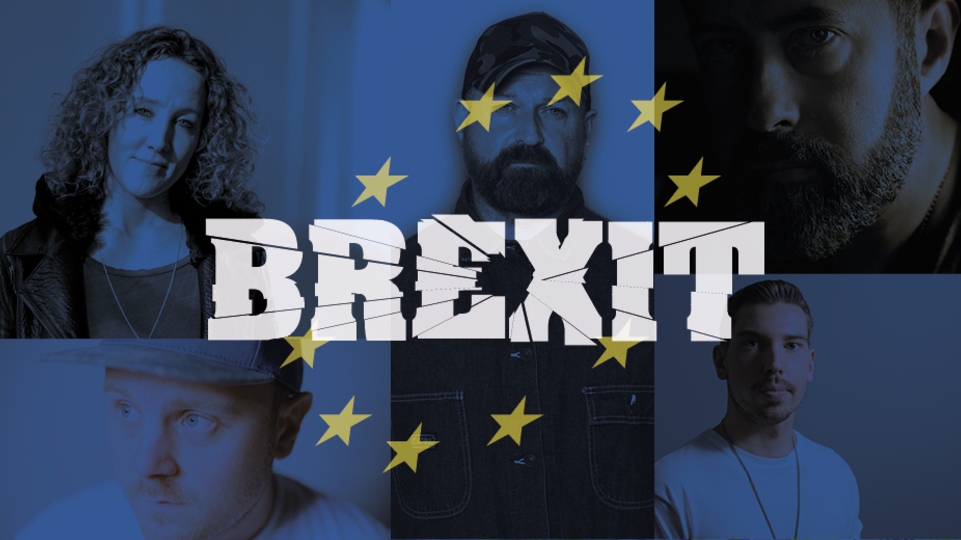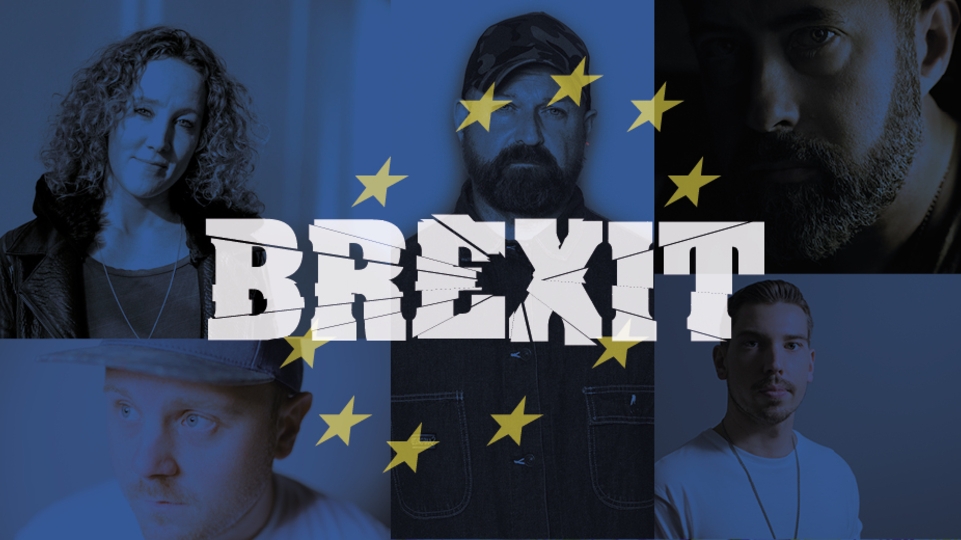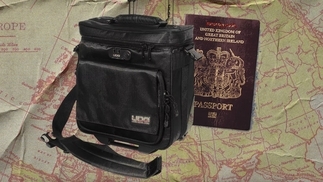What will Brexit mean for UK DJs?


Brexit happens early next year, but its impact upon musicians working in the EU remains unclear. We delve into the potential effects of the UK’s departure from the European Union on DJs, and what new laws might mitigate against them...
WORDS: Harold Heath
NOTE: This article is over two years old and some information may be out of date. Please refer to this feature, written in January 2021, which looks at the current rules for touring artists and crew, and asks how governments need to change the rules to keep the music industry alive
At 11 pm on the 29th March next year, the Article 50 clock runs out and the UK will leave the European Union (EU). A quick recap for those of you who haven’t been paying attention: in 1973, the UK joined the European Economic Community, which would later become the EU. It was a grouping of European countries, initially set up after the horrors of World War II as an attempt to pool resources, promote trade and maintain peace between the member states. In June 2016, the UK voted to leave the EU. In the two years since then, the UK government has not managed to put together a comprehensive and workable Brexit deal, leaving both the details and the bigger picture for industries in post-Brexit UK uncertain. This is certainly true for the music industry in general and dance music in particular, where the impact of Brexit on DJs and performers currently making a considerable part of their living in Europe is unclear. Many of the bigger DJs and acts also have production staff, lighting crews, sound engineers, road crews, drivers, agents, artist liaisons, promoters and managers, all of whom will be affected by Brexit.
Under current EU law, and specifically the principle of free movement of people, UK residents are free to travel, work and reside in any other EU country. EU membership also confers many automatic rights and protections, such as access to health services, cancelled flight compensation and the right to be paid at the same rate as local DJs. If a UK citizen gets a DJ gig in Europe, you don’t need a visa or a permit, you don’t need to prove you’re a performer, crossing national borders is simple, you’ll receive medical care if needed and you can drive a car in Europe if you’ve passed your test.

“I think a lot of people take for granted just how easy it is to travel and work across the EU, because that right has been there since the whole touring DJ thing took off” - HUXLEY
If you get a last minute booking, you can book a flight and go. Because of our membership of the EU, DJing in Europe, be it a single night or fully-fledged tour, is remarkably easy compared to gigging in the rest of the world. The UK government has repeatedly stated that the free movement of people will end when we exit the EU. Theresa May’s ‘Chequers Plan’ for Brexit restated this, but also included something called a ‘mobility framework’ to facilitate ease of travel, work and study between the UK and the EU. However, as yet the details of this are unclear, the plan’s acceptance by the EU far from certain — and the post-Brexit situation remains ambiguous. Instead, the music industry finds itself in a strange no-man’s- land, where our government is repeatedly telling us that freedom of movement is definitely ending, without the industry knowing what, if anything, will replace it.
For the larger music business, this is an issue too big to ignore. The UK’s professional musicians body, the Incorporated Society Of Musicians (ISM) released a report in July of this year, drawing attention to the significant difficulties faced by performers when travelling outside of the EU (it is generally held that DJs come under the umbrella term ‘musicians and performers’). They carried out three substantial surveys of the UK musician community and found that, of all the respondents who had experienced difficulties travelling outside the EU for work, 79% specified that the difficulty was with visas.
Currently, if a UK DJ wants to work in a non-EU country, they’ll need a work permit, responsibility for which lies with the promoters of the country abroad. However, it is the artist’s (or agent’s) responsibility to arrange a visa, and there are almost as many different visa forms and processes as there are countries. Some countries require work visas, others a certificate of eligibility, and most will require copies of the contract of work. Agents in the UK would need to check with the relevant embassy to ensure the relevant paperwork is filed correctly and in a timely manner. Also, work permits tend to be issued for a specific job with a specific employer, so if an agent is arranging a tour across a number of countries, then the process becomes even more involved.
Caroline Hayes of Spun Out and Black Door DJ agencies handles a number of well-known DJs, and over half her current bookings are in the EU. She estimates that loss of free movement would severely affect around 70% of her DJs, and foresees a, “bureaucratic nightmare ahead, for myself and my roster”.
This bureaucratic nightmare will also include tax: the UK currently has a double taxation agreement in place with the EU, conducted through what’s called an A1 form. This confirms that the DJ is remaining in the UK National Insurance scheme, allows the UK government to determine which member state’s social security legislation will apply, and thus avoids the DJ paying tax twice (once in the host country and again at home in the UK). Caroline reports that completing the form and waiting for the local tax office to authorise and return it can already take weeks, sometimes months, and this is the one standard form for the whole of the EU. She continues: “To imagine a world where similar forms and work permits are required for every gig in the EU is too painful to think about. It would mean much more work on the agent’s (and artist’s) behalf to facilitate this.”
The ISM report details many sorry tales of the reality for working performers travelling outside the EU. Border hold-ups, delays, lost or confiscated equipment, complex administration, visas not coming through in time, work lost and missed gigs are all part and parcel of life for the performer. “I think a lot of people take for granted just how easy it is to travel and work across the EU, because that right has been there since the whole touring DJ thing took off,” DJ and producer Huxley says. “Another thing people might not be aware of is just how much paperwork is involved in doing shows outside the EU: visas, dual taxation forms. But imagine being an up-and-coming DJ who gets thrown into all of this without any guidance. That’s gonna have a really negative impact on new UK talent coming through, no doubt about it.”

“Zero freedom of movement between countries and sorting taxation and visas will just cause a lot of us who manage ourselves a lot of endless paperwork and cancelled shows.” - HIFI SEAN
“We know from musicians going to the United States that applying for visas can be expensive and fraught with difficulties. Now imagine doing that for 27 EU member states.”
The MU is articulating a very common opinion throughout the industry, that: “the possible introduction of work permissions and/or visas for British musicians touring and working in Europe could be extremely detrimental”. Hot Creations’ Denney says, “It’s just going to make our jobs more difficult as touring DJs. We are going to have to apply for visas, which is going to be a more lengthy and costly process for playing around Europe. I love how we can currently move around Europe freely, be in Barcelona one day then in Berlin the next with such ease. If this hard Brexit goes through, it’s going to take a lot more time for everything: the process of applying, getting, paying for a visa, then the actual queues in the airports are going to be longer with visa checks.”
Recording artist and Glitterbox DJ HiFi Sean is also aware of the likely leap in administration that Brexit will bring. “Zero freedom of movement between countries and sorting taxation and visas will just cause a lot of us who manage ourselves a lot of endless paperwork and cancelled shows.” The MU is running a campaign to lobby MPs to get reciprocal free movement for musicians and performers, because this concern with the end of free movement is part of a much larger picture. The UK music industry is huge, contributing about £4.4bn per year to the UK economy, and the end of free movement will affect the entire sector. The national membership body for the UK’s creative industries, the Creative Industries Federation, have drawn attention to the negative impact of Brexit on the creative sector, and UK Music chief executive Michael Dugher has warned of risks to the music industry from Brexit and called for a special “touring passport” for British artists after Brexit. The House Of Lords’ ‘Brexit: movement of people in the cultural sector’ report, released earlier this year, called for clarity on free movement for those in the creative industries post- Brexit, and also supports the idea of a ‘touring visa’ for performers.
So what does this all mean for DJs? If or when free movement of people ends in Europe for UK citizens, then as things currently stand, playing gigs in Europe will become much more complicated, expensive, and more time-consuming to arrange. The journeys will become more difficult, there will be more and longer border checks, and the ease with which we currently travel around Europe will be seriously curtailed.
This article has only looked at the practicalities for working DJs, but there is also a whole other discussion to be had about the wider cultural cost of isolating ourselves from other creative communities, and the negative impact of Brexit on the club scene, music industry, and the very make up of our dancefloors. As techno don Dave Clarke puts it, “Obviously it will affect freedom of movement and freedom to work, it may also affect flights/boats in and out of the UK. It will also have the possibility of putting off European talent coming to the UK, especially if what happened this year to WOMAD and other festivals pans out to all that are not born British that want to be at cultural events. The UK music industry is very important to the baseline GDP of the UK, yet it will clearly suffer tremendously.”
But are there any positives for DJs in the ending of free movement? The majority of the industry seems to be speaking with one voice on this subject, but there are some Euro-sceptics who can see an advantage for DJs in leaving the EU. Some have observed that if it becomes more difficult for non-UK DJs to visit the UK — and the likelihood of visas and the relative low DJ fees compared to Europe seem to suggest that it will — then there will be more room for local DJs, with the same true in European countries if less UK DJs are travelling abroad for gigs.
In business terms, for UK working DJs, this could be an advantage of Brexit, but it’s one that comes at a heavy price: the denial of the current ease with which all Europeans can travel around Europe. It’s a slim, almost tragic silver lining that our scene, built on togetherness, community and overcoming barriers, might somehow benefit from less foreign DJs playing here. It is also extremely difficult to predict exactly how it might impact the UK club scene. Economic forecasts for the UK post- Brexit are glum at best. There’s no guarantee that if fewer European DJs come to the UK, UK promoters will therefore employ more UK DJs. In a depressed economy, there could be fewer work opportunities anyway; line-ups might simply shrink, or the additional costs of hiring European DJs might just be passed down the chain. This, perhaps, is the crucial point: when Brexit happens, in whatever form, the additional time, effort and money for DJs to travel and perform between Europe and the UK will mean someone, somewhere, is going to have to pay.
It might be the clubbers, it might be the agencies, management, promoters or it might be the DJs. And which DJs will be hit hardest? Young, up-and-coming DJs, because they’re less likely to be booked several months in advance and they’re more likely to get a low-key offer with a much shorter lead-time, increasing the likelihood of visa problems or paying double tax. They’ll be the ones in the weakest position to bargain for fair wages, less able to afford any additional work permit fees and less likely to have an agent who is set up to deal with the increased administration.

“To imagine a world where similar forms and work permits are required for every gig in the EU is too painful to think about. It would mean much more work on the agent’s (and artist’s) behalf to facilitate this.” - CAROLINE HAYNES
However we leave the EU, it looks as though free movement of people as we know it is going to end for UK citizens, perhaps sooner, perhaps later. If so, and you’re currently self-employed DJing around Europe, you’re going to need to learn a new set of administrative skills, and make some new contacts in the Tax Office, the Post Office, foreign embassies, British embassies in other countries, insurance companies. DJing just got a whole lot less glamorous.
If the last few years have taught us anything about politics, it’s that anything can happen. There was a time when a No-Deal Brexit was unthinkable, and now the EU and the UK are seriously planning for it. At the time of writing, Brexit is just over 200 days away. Even if you support Brexit, there is a strong case being made for UK performers, musicians and DJs to still be able to access the European market with the ease they currently can, and for non-UK performers to be able to come here with ease too. With both major UK political parties committed to leaving the EU, it’s easy to feel powerless about Brexit. However, history has shown that large-scale political change never occurs without grass roots movements; that radical change always comes from below. As discussed above, most of the music industry is campaigning against the removal of free movement. The MU is lobbying MPs to make a special exception for performers and musicians, and their campaign is supported by MPs, members of the House Of Lords and MEPs. It’s worth noting that at the time of writing, not a single member of the Conservative government has signed up in support of the MU campaign. There is still everything to play for.
•With thanks to Silverlining for advice on UK and EU law.





